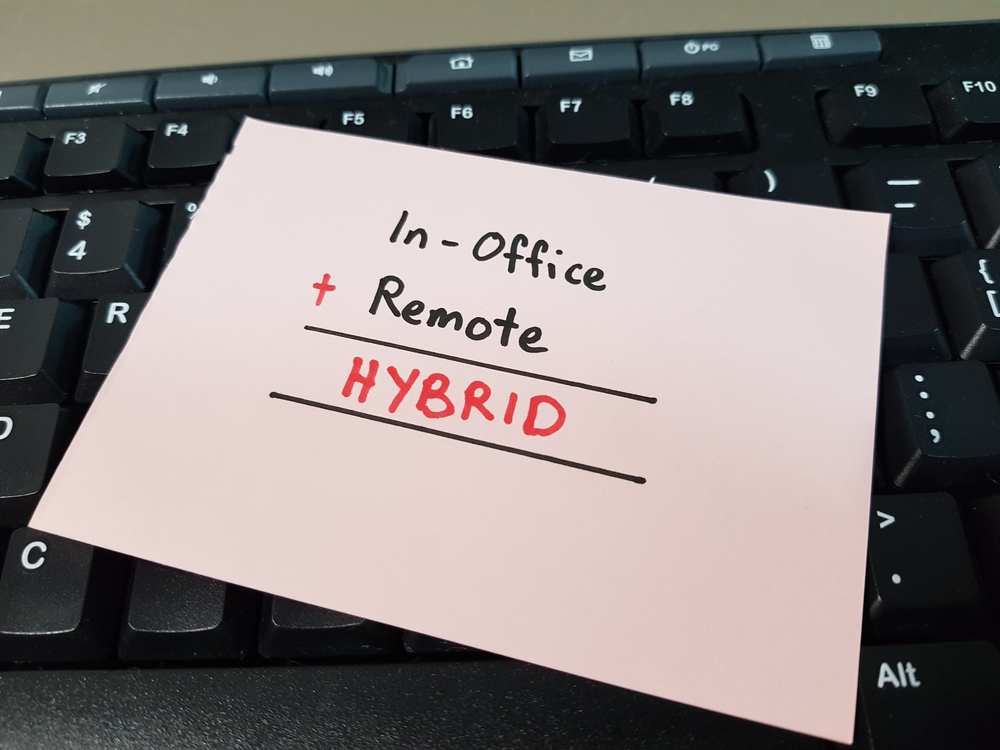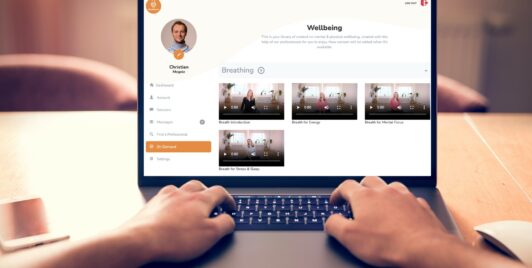Introduction
The modern workplace has undergone significant transformation over the past few years, with the rise of the hybrid workforce. This hybrid model combines remote and in-office work, offering employees greater flexibility but also presenting unique challenges for employers. One of these challenges is ensuring that wellbeing support remains accessible and effective for all employees, regardless of their work location. In this article, we will explore strategies to balance wellbeing support across a hybrid workforce, promoting the mental and emotional health of your entire team.

- Assess the needs of your workforce
The first step in balancing wellbeing support is to understand the unique needs and challenges of this hybrid workforce. Recognise that different individuals may require different forms of support. Conduct surveys or engage in open dialogues with your team members to gather insights into their wellbeing concerns. Are they struggling with remote work isolation? Do they have difficulty unplugging from work at home? Are they experiencing burnout due to long hours? By pinpointing these needs, you can tailor your support programmes accordingly.
- Implement flexible policies
A successful hybrid work model requires flexibility not only in work arrangements but also in policies that support wellbeing. Review and adjust your policies to accommodate remote and in-office employees alike. Consider offering flexible working hours, allowing employees to better manage their work-life balance. Ensure that mental health days are readily available to all, regardless of location, to encourage self-care when needed.
- Leverage technology for accessibility
In a hybrid workforce, technology can be your ally in delivering wellbeing support. Invest in digital tools and platforms that facilitate remote access to mental health resources, such as online therapy sessions or resilience apps. Ensure that your employees can easily connect with wellness resources, whether they are working from home or in the office.
- Promote inclusivity
It’s essential to create a culture of inclusivity within your organisation. Ensure that wellbeing programmes and resources are designed to cater to a diverse workforce. Consider offering resources in multiple languages, and be mindful of cultural differences when addressing mental health and wellbeing topics. Encourage open discussions around mental health to reduce stigma and make everyone feel comfortable seeking support.
- Provide training for managers
Managers play a pivotal role in promoting employee wellbeing. Offer training programmes to help them identify signs of stress or burnout in their teams, regardless of whether they work in-office or remotely. Equip managers with the skills to have supportive conversations and direct employees to the appropriate resources when needed.
- Regular check-ins and feedback loops
Frequent check-ins with employees are crucial for gauging their wellbeing and addressing concerns promptly. Use regular one-on-one meetings or team check-ins to ask about their mental and emotional health. Create feedback loops that allow employees to share their thoughts on the effectiveness of wellbeing programmes and suggest improvements.
- Encourage a hybrid-ready wellbeing culture
Finally, build a wellbeing culture that is adaptable to the hybrid work environment. Encourage employees to share their own self-care practices and tips for balancing work and life in a hybrid setting. Recognise and celebrate success stories of employees who have thrived in the hybrid model while maintaining their wellbeing.
- Make fun activities inclusive
In the quest to balance wellbeing support across a hybrid workforce, inclusivity should be a top priority. It’s important to remember that not everyone can participate in office-based activities like the traditional (free) pizza night. For those working remotely, these events might be out of reach. To ensure that all employees, regardless of their work location, can enjoy a fulfilling and fun work experience, consider offering virtual alternatives. Virtual game nights, online team-building activities, and digital social gatherings can bring the same sense of camaraderie to remote team members. By making inclusivity a part of your wellbeing strategy, you create a stronger and more cohesive hybrid workforce.
Recognising potential wellbeing challenges in a hybrid workforce
In the complex landscape of a hybrid workforce, it’s crucial for employers to remain vigilant and proactive in identifying potential wellbeing challenges. Keep an eye out for signs of stress, burnout, or disengagement among your team members. One clear indicator of disengagement in remote employees is when they exhibit minimal interaction with their in-office colleagues. This can manifest as infrequent communication, reluctance to turn their camera on during virtual meetings, or a lack of participation in online events or team-building activities.
Regular check-ins, surveys, and open channels of communication can help unearth concerns before they escalate. Remember that wellbeing isn’t just a reaction to problems; it’s a proactive approach to sustaining a healthy and productive workforce. By recognising issues early and taking swift action, you can create a supportive environment where challenges are met with solutions, helping your team to thrive in the hybrid work environment.
Conclusion
Balancing wellbeing support across a hybrid workforce is essential for fostering a healthy, engaged, and productive team. By understanding employee needs, implementing flexible policies, leveraging technology, promoting inclusivity, training managers, and maintaining open communication, you can create an environment where wellbeing is a top priority for all employees, whether they are working remotely or in the office. This not only enhances staff retention by making your organisation an attractive and supportive place to work, but also bolsters your recruitment efforts. In a competitive job market, candidates are increasingly seeking employers who prioritise employee wellbeing.
At MindBerry, we understand the unique dynamics of this new work paradigm, and we’re here to help. Our experienced professionals specialise in crafting tailored solutions to support your organisation’s hybrid workforce. If you’re ready to take the next step in enhancing the wellbeing and productivity of your team, don’t hesitate to ‘GET IN TOUCH’ with us today. Remember, a supported workforce is a resilient and successful one.


